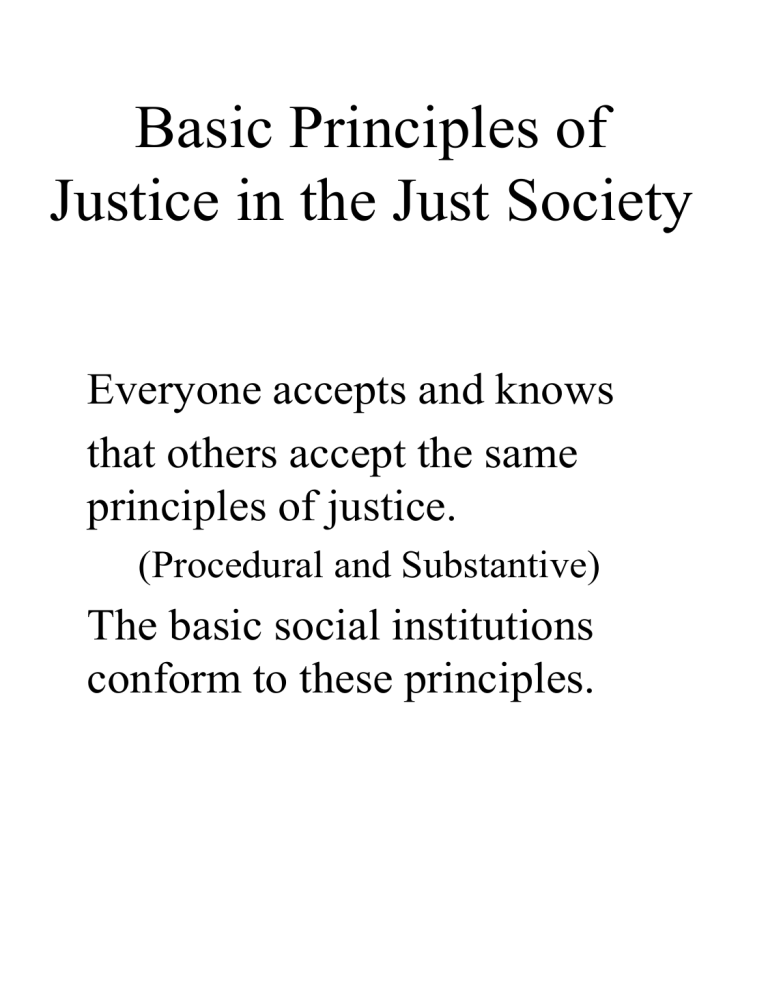Basic Principles of Justice in the Just Society

Basic Principles of
Justice in the Just Society
Everyone accepts and knows that others accept the same principles of justice.
(Procedural and Substantive)
The basic social institutions conform to these principles.
Must a Just Society
Guarantee Liberty?
• Political liberty: freedom from governmental interference, freedom to influence government (vote, assembly)
• Personal Liberty: freedom to do what we want as long as
– an equal amount of freedom is available for all.
– our actions do not harm others.
Must Just Society be democratic?
– Types of democracy
• direct vs. representative
• consensus vs. majority rule
• democratic government vs.democracy in all areas
Justice and Power
• When, if ever, is power over others justified?
– with their consent (Social
Contract)
– when it maximizes utility
– when we are protected from abuse of power
• arbitrariness
• excess
Citizens of a Just Society
• Fully informed rational bargainers
• Balancing self-interest with common good
Procedural Justice
• All decisions are made impartially.
• Rules and procedures are applied consistently.
• No arbitrary distinctions are made.
Applying Basic
Principles of Justice
• Are principles of justice widely shared? Do social institutions conform to these principles?
• Are procedures followed consistently and impartially?
• Is liberty protected?
• Are decisions made democratically?
/ Does everyone have a chance to participate in the debate?
• Is power used arbitrarily?
Excessively?
• Are citizens informed? Committed to balancing their own interests and the common good?
Three Dimensions of
Justice
• Retributive justice
– principles that govern punishment
• Compensatory justice
– principles that govern compensation to victims
• Distributive justice
– principles that govern the distribution of benefits and burdens




